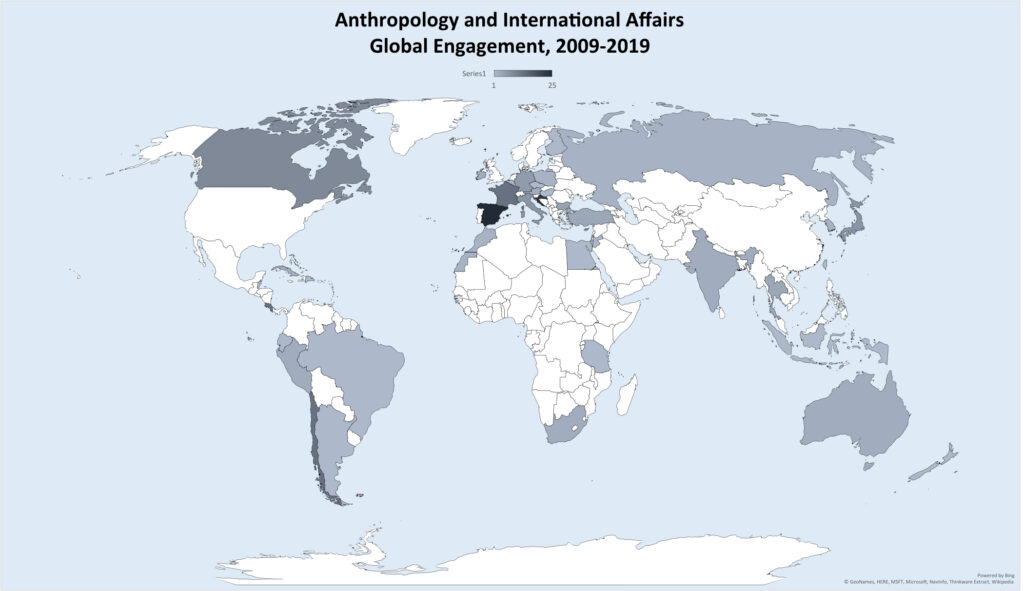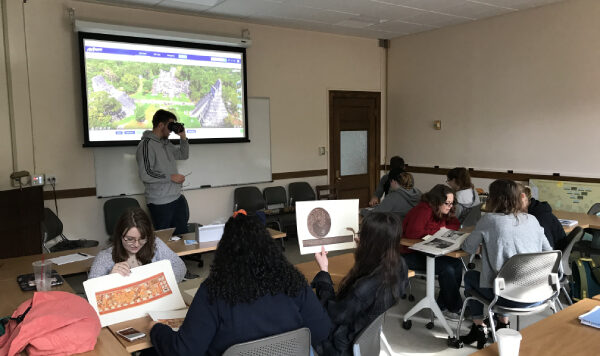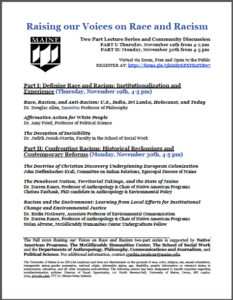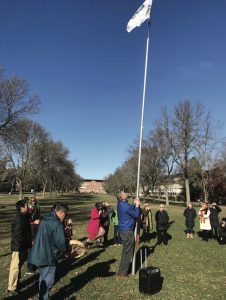Anthropology promotes understanding and appreciation of social complexity and diversity,
actively improving the human condition.
Anthropology is the study of humans. Anthropologists study the entire spectrum of human existence from 6.5 million years ago when the first hominid set foot on the African continent, the process of human evolution, domestication of plants and animals, development of civilization, migration to the ends of the earth, and the present day diversity of cultures, religions, economies, and kinship systems seen around the world. Anthropology provides a well-rounded, generalist education that enhances wide career choices and provides students with the ability to critically evaluate theories, options, and actions that affect humankind.
Raising our Voices on Race and Racism
Raising our Voices on Race and Racism is the result of a collaborative grassroots effort among faculty, students and community members at the University of Maine. Outraged by deeply rooted, systemic and recently resurgent forms of racism and racialized violence, we felt compelled to raise our voices on race and racism. While we recognize that we all have a lot more work to do, we hope that this series of publicly available mini lectures and community discussions might help to move the needle towards active anti-racist practice and pedagogy on campus and beyond. Read More.
Course Information
Global Engagement
The Department of Anthropology’s degree programs align well with issues of global importance. We therefore strongly encourage our students to seek out opportunities to study abroad, whether it be a semester length program, a summer session, or travel study course. Since 2009, anthropology and international affairs majors have participated in international programs in more than 45 countries on six different continents. To learn more about what these opportunities look like, visit our Global Engagement page.






